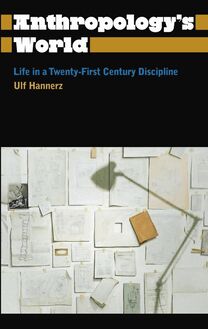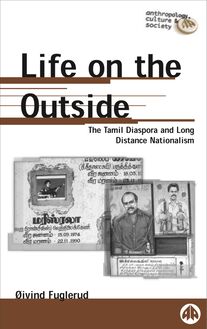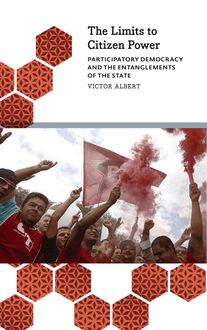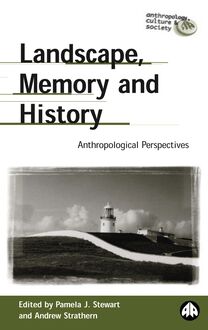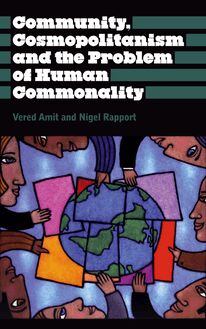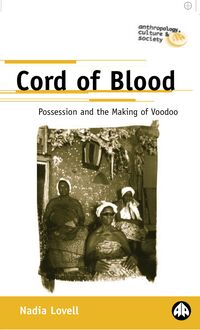-
 Univers
Univers
-
 Ebooks
Ebooks
-
 Livres audio
Livres audio
-
 Presse
Presse
-
 Podcasts
Podcasts
-
 BD
BD
-
 Documents
Documents
-
- Cours
- Révisions
- Ressources pédagogiques
- Sciences de l’éducation
- Manuels scolaires
- Langues
- Travaux de classe
- Annales de BEP
- Etudes supérieures
- Maternelle et primaire
- Fiches de lecture
- Orientation scolaire
- Méthodologie
- Corrigés de devoir
- Annales d’examens et concours
- Annales du bac
- Annales du brevet
- Rapports de stage
La lecture à portée de main
221 pages
English
Découvre YouScribe en t'inscrivant gratuitement
Je m'inscrisDécouvre YouScribe en t'inscrivant gratuitement
Je m'inscris
Obtenez un accès à la bibliothèque pour le consulter en ligne
En savoir plus
En savoir plus
221 pages
English
Obtenez un accès à la bibliothèque pour le consulter en ligne
En savoir plus
En savoir plus

Description
Control and Subversion investigates the relationship of gender to the inner workings of social control, such as exposing ways in which post-Soviet Tajikistan society threatens men’s masculinity, thereby bringing them to force family members into conformity, irrespective of the suffering this may cause.
Told through ethnographically collected life histories, the book examines how masculine and feminine gender characteristics influence personal relationships and explores gender relations at their most intimate - from the secret musings of adolescent girls, through the painful experiences of young men, to the trauma of sexual initiation.
Although largely concentrating on contemporary life, the book also discusses historical materials and Soviet influence on Tajik society. Control and Subversion is essential reading for anyone interested in Central Asia, Muslim societies, the lives of Muslim women, or gender in a Muslim context.
Acknowledgements
Dramatis Personae
Technical Information and Terminology
Glossary
Introduction: The Research Setting and Methodology
1. Conceptual Background
2. The Bolsheviks Attack but the Tajiks Resist
3. Community Control
4. Inter-Generational Family Control
5. The Individual Unmasked
6. The Couple Relationship: Love, Sex and Marriage
7. Control and Subversion
Bibliography
Told through ethnographically collected life histories, the book examines how masculine and feminine gender characteristics influence personal relationships and explores gender relations at their most intimate - from the secret musings of adolescent girls, through the painful experiences of young men, to the trauma of sexual initiation.
Although largely concentrating on contemporary life, the book also discusses historical materials and Soviet influence on Tajik society. Control and Subversion is essential reading for anyone interested in Central Asia, Muslim societies, the lives of Muslim women, or gender in a Muslim context.
Acknowledgements
Dramatis Personae
Technical Information and Terminology
Glossary
Introduction: The Research Setting and Methodology
1. Conceptual Background
2. The Bolsheviks Attack but the Tajiks Resist
3. Community Control
4. Inter-Generational Family Control
5. The Individual Unmasked
6. The Couple Relationship: Love, Sex and Marriage
7. Control and Subversion
Bibliography
Sujets
Informations
| Publié par | Pluto Press |
| Date de parution | 20 mars 2004 |
| Nombre de lectures | 0 |
| EAN13 | 9781849642187 |
| Langue | English |
Informations légales : prix de location à la page 0,6250€. Cette information est donnée uniquement à titre indicatif conformément à la législation en vigueur.
Extrait
CONTROL AND SUBVERSION
Gender Relations in Tajikistan
COLETTEHARRIS
P Pluto Press LONDON • STERLING, VIRGINIA
First published 2004 by PLUTO PRESS 345 Archway Road, London N6 5AA and 22883 Quicksilver Drive, Sterling, VA 20166–2012, USA
www.plutobooks.com
Copyright © Colette Harris 2004
The right of Colette Harris to be identified as the author of this work has been asserted by her in accordance with the Copyright, Designs and Patents Act 1988.
British Library Cataloguing in Publication Data A catalogue record for this book is available from the British Library
ISBN 0 7453 2168 2 hardback ISBN 0 7453 2167 4 paperback
Library of Congress Cataloging in Publication Data Harris, Colette, 1948– Control and subversion : gender relations in Tajikistan / Colette Harris. p. cm. –– (Anthropology, culture, and society) Includes bibliographical references. ISBN 0–7453–2168–2 –– ISBN 0–7453–2167–4 (Pbk.) 1. Women––Tajikistan––Social conditions. 2. Sex customs––Tajikistan. 3. Social control––Tajikistan. 4. Post-communism––Tajikistan. 5. Tajikistan––Social conditions––1991– I. Title. II. Series.
HQ1735.25.H37 2004 305.42'09586––dc22
10
9
8
7
6
5
4
3
2
1
2003022869
Designed and produced for Pluto Press by Chase Publishing Services, Fortescue, Sidmouth EX10 9QG Typeset from disk by Stanford DTP Services, Northampton, England Printed in the European Union by Antony Rowe, Chippenham and Eastbourne, England
This book is dedicated to the memory of
Clif Dowell († 1992) Michael Morrow († 1994) Viktor Alekseevich Nechaev († 1995) Karomat Isaeva († 1997) Mikhail Mikhailovich Tajikov († 1997) Ruth Liebrecht († 1998)
CONTENTS
Acknowledgements Dramatis Personae
Introduction: The Research Setting and Methodology
1. Conceptual Background 2. The Bolsheviks Attack but the Tajiks Resist 3. Community Control 4. Intergenerational Family Control 5. The Individual Unmasked 6. The Couple Relationship: Love, Sex and Marriage Conclusion: Control and Subversion
Technical Information and Terminology Glossary Notes Bibliography Index
viii xii
1 12 42 67 92 114 134 170
177 179 182 188 196
ACKNOWLEDGEMENTS
Many people have helped and supported me in my study of Tajikistan, and without them my work would have been considerably more difficult and less pleasant. I shall try to remember them all here. However, if I have accidentally forgotten to name anyone, please do not think I am the less indebted. My thanks to Greet Vink and the FUOS fund of the University of Amsterdam for providing me with two grants that allowed me to work on my research without taking a formal job. My thanks to Dave Hampson, Sjoerd van Schoneveld and the others who helped us with the first grants from Christian Aid for the Khatlon Women’s Health Project. Thanks to Chris Buckley for his continued support, to Edith Wallmeier and the other CARE staff who enabled Ghamkhori (the Tajik NGO I was working with) to receive the EU/TACIS grant, and to the TACIS LIEN Fund whose support allowed me to continue working in Tajikistan until early 2001, and to carry on with our project to tackle some of the most critical problems of Tajik women. My thanks also to Max Spoor for his comments on an earlier draft; to Natalya Kosmarskaya, Deniz Kandiyoti, and others for their useful material on topics related to Tajikistan, and their support of my research; and to Deniz also for her comments on an earlier draft. Thanks to Rayna Rapp, Paolo Possiedi, Rosalind Petchesky and my other New York friends for their support while I was doing my research there; to Ron Porta and Heather Mackay for welcoming me as a guest while I was reading in the British Library. Thanks also to the members of InDRA and AGIDS of the University of Amsterdam, and to many staff members of ISS for their support, especially to René Bekius for his bibliographical contributions. I am grateful to John Borstlap for his moral and practical support from the very beginning of this enterprise. I want to express particular thanks to Lorraine Nencel for her most helpful theoretical insights, suggestions on improving my approach and critiques of several drafts, as well as for introducing me to Pluto Press and thus facilitating the publication of this book.
viii
Acknowledgementsix Thanks to Gabrielle van den Berg, who gave me my first books in Tajik, and the benefit of her knowledge of Tajikistan. Thanks also to Janet Momsen for her belief in my work and to Margaret Merrill for helping me with the final manuscript. A very special thanks to Shirin Akiner, who applied her extraordinarily wide and deep knowledge of Central Asia to a critique of an earlier version, which helped me greatly to improve the political and historical sections of this text. I am grateful to her also for her strong support during the process of searching for a publisher. Most heartfelt thanks to Joke Schrijvers, under whose guidance I wrote the original version of this book for my PhD dissertation, and whose sensitive oversight enabled me to develop my epistemological and methodological approaches. Her personal commitment and friendship, as well as her supervision, were invaluable. I owe much of what is good in it to her. I wish to express my gratitude to Olga Dmitrieva, Natalya Kosmarskaya and my other friends in Moscow for their support during my visits, and for their introductions to people in Tajikistan at a time when I knew nobody there; to Larissa Dodkhudoeva for first inviting me to Tajikistan; to R.K. Rakhimov, Director of the Institute of World Economy and International Relations, for inviting me to become a guest researcher there in 1995; to Safro Isaeva for many things but especially for her introduction to her aunt Karomat; to Ayesha Homed whose support, comments and introductions were most useful; to Dr Sofia Hakimova for her help on matters relating to reproductive health; to the members of the ethnographic department of the Tajik Academy of Sciences for their bibliographical support; to the librarians of the Academy of Sciences library for their assistance; to Zoya Tajikova, Savely Dvorin, Zarrina Mirshakar, Zukhra Akhmedova, Volodya Savvateev and Margarita Voytova among many others, who helped me personally during my visits to Tajikistan. Thanks to all my friends from the inter-national organizations in Tajikistan, especially those from CARE, Human Rights Watch, IFRC, Mission Øst, MSF Holland, Relief International, Save the Children Fund (UK), the Swiss Development Corporation, the UN’s World Food Programme (WFP) and World Health Organisation (WHO). Especial thanks to the libraries of the Academy of Sciences, the Firdousi National Library of Tajikistan, ACCELS, and others for providing me with reading material outside my research topics. Thanks to all those who kindly allowed me to print the stories they told me. They are individually acknowledged in the notes. In addition, I owe a great deal to the staff of Ghamkhori, who supported me, and continue to support me, and whose work has helped me learn so much about the culture of Tajikistan. And of course, a very, very special thanks to all
xControl and Subversion those women (and men), who spent so many hours of their time with me recounting their (life) stories, and without whose friendship and openness this book would not have been possible. I hope one day to be able to publish it in Russian so they can read my conclusions for themselves. Finally, I owe a great deal to the support of those persons, alas no longer with us, to whom I have dedicated this book. Clif and Michael died before I started my doctorate. Had they lived I am sure they would have done their best to support me in any way they could. Ruth helped me through many different phases of my life and was especially fascinated by the present one. I became friends with Viktor Alekseevich and Mikhail Mikhailovich on my first trip to Tajikistan. They spent the greatest part of their lives there and collected many useful books, some of which they passed on to me. Karomat was my daily companion during my first three trips to Tajikistan. Without her insights into Tajik life my understand-ing of the region would be much the poorer and so would this book.
T
VILOYATI SUGHD Ayni (LENINOBOD)
H
A
K
Y
A
T
I
Z
G
Y
Tashkent (c.35 km) A
VILOYATI MUKHTORI
E
N
N
Khujand
T
I
N
A
U
Z
Bukhara (c.200km) K Samarkand
I
H
G
S
Namangan
Ferghana
A
A
Termiz
Murghob
N
REGIONS OF Garm REPUBLICAN SUBORDINATION Dushanbe Tursunzoda Kofernihon Hissor Norak
B
F
C
VILOYATI KHATLON Khojamaston Qurghonteppa Kulob Bokhtar Sayot Vakhsh Pyandzh Shaartuz
The townships of Bokhtar, Garm, Hissor, Khojamaston, Kofernihon, Kulob and Vakhsh are within the regions of the same name.
KAZA K H S T A N
S
N
Isfara
R
S
ZarkhokUroteppa
Panjakent
(KUHISTONI BADAKHSHON)
Tajikistan and surrounding region
Khorugh
P A K I S T A N
DRAMATIS PERSONAE
The main characters with their families. I have put in bold the names of those who play an important role.
Family
Tillo husband,Chahonbek three daughters, two sons parents, grandparents
Karomat (Isaeva) husband,Khudoydod niece, Safro Isaeva father, mother, sisters
Jahongul mother,Nahdiya brothers, Farhod and Farukh sister, Tahmina Tahmina’s husband,Rashid
Rustam wife,Jumbul four children girlfriend,Zhenia father,Malik;mother,Dilorom brother, Kurbon; Kurbon’s wife, Mukhayo sisters, Khatiya and Sumangul
Zora husband,Fayziddin daughter,Dila;son,Ali
Place of residence
Dushanbe Dushanbe
Dushanbe Dushanbe
Dushanbe
Dushanbe/Hissor
Dushanbe Dushanbe
Dushanbe/Russia Dushanbe
Dushanbe Dushanbe Dushanbe
xii
Place of origin
Dushanbe Shaartuz
Zarkhok Dushanbe
Dushanbe
Dushanbe Hissor Dushanbe
Dushanbe Hissor
Uroteppa Khatlon Dushanbe
INTRODUCTION: THE RESEARCH SETTING AND METHODOLOGY
It is a hot and sunny afternoon in the village of Sayot. A group of women are discussing the practical difficulties of attaining their rights and how complicated it is to control their lives when denied the use of direct action. In order to gain their husbands’ approval they have to manipulate them without challenging the traditions that allow men unilateral rights of decision-making. Everyone is in fits of laughter as the women recount story after story of the clever ways in which they do this. The one that occasioned the most laughter was told by 30-year-old Zulfia:
My first two children were both girls. After the birth of the second I wanted a rest from pregnancy but my husband would not agree. He told me I would have to go on having children until I had a boy, however long this took. My third child was also a girl and I was becoming desperate. I was pregnant for the fourth time in five years, exhausted, harried and dreading not only the birth of this child but the likelihood of having to face a fifth and perhaps even a sixth or seventh pregnancy, if the desired boy did not come along. I tried arguing that it would do no harm to wait a few years but my husband was adamant. Lying awake at night trying to think of a way out, I eventually hit on a plan. When my labour pains started I sent for my husband. He immediately offered to fetch the midwife but I refused. I insisted on his preparing hot water, clean cloths and the other necessities. Then I called him to my side, took his hand, and held on to it. Throughout my labour I did not let go, no matter how bad things got. When finally it was all over and my fourth daughter had been born he turned to me and said: That was ghastly! I cant let you go through it again. I will take you to get fitted with an IUD. It doesnt matter that we dont have a son. I cant face such horrors any more. That was my last pregnancy and since then my husband has never again mentioned having a son.
We all laughed long at the vision of that poor man being forced to endure, if only at second hand, the pain that women go through every time they give birth. And we congratulated Zulfia on her clever tactics. Of course, she was lucky. Another man might have used violence to force her to let go, and walked away.
1
-
 Univers
Univers
-
 Ebooks
Ebooks
-
 Livres audio
Livres audio
-
 Presse
Presse
-
 Podcasts
Podcasts
-
 BD
BD
-
 Documents
Documents
-
Jeunesse
-
Littérature
-
Ressources professionnelles
-
Santé et bien-être
-
Savoirs
-
Education
-
Loisirs et hobbies
-
Art, musique et cinéma
-
Actualité et débat de société
-
Jeunesse
-
Littérature
-
Ressources professionnelles
-
Santé et bien-être
-
Savoirs
-
Education
-
Loisirs et hobbies
-
Art, musique et cinéma
-
Actualité et débat de société
-
Actualités
-
Lifestyle
-
Presse jeunesse
-
Presse professionnelle
-
Pratique
-
Presse sportive
-
Presse internationale
-
Culture & Médias
-
Action et Aventures
-
Science-fiction et Fantasy
-
Société
-
Jeunesse
-
Littérature
-
Ressources professionnelles
-
Santé et bien-être
-
Savoirs
-
Education
-
Loisirs et hobbies
-
Art, musique et cinéma
-
Actualité et débat de société
- Cours
- Révisions
- Ressources pédagogiques
- Sciences de l’éducation
- Manuels scolaires
- Langues
- Travaux de classe
- Annales de BEP
- Etudes supérieures
- Maternelle et primaire
- Fiches de lecture
- Orientation scolaire
- Méthodologie
- Corrigés de devoir
- Annales d’examens et concours
- Annales du bac
- Annales du brevet
- Rapports de stage
Signaler un problème
YouScribe
Le catalogue
Le service
© 2010-2024 YouScribe


